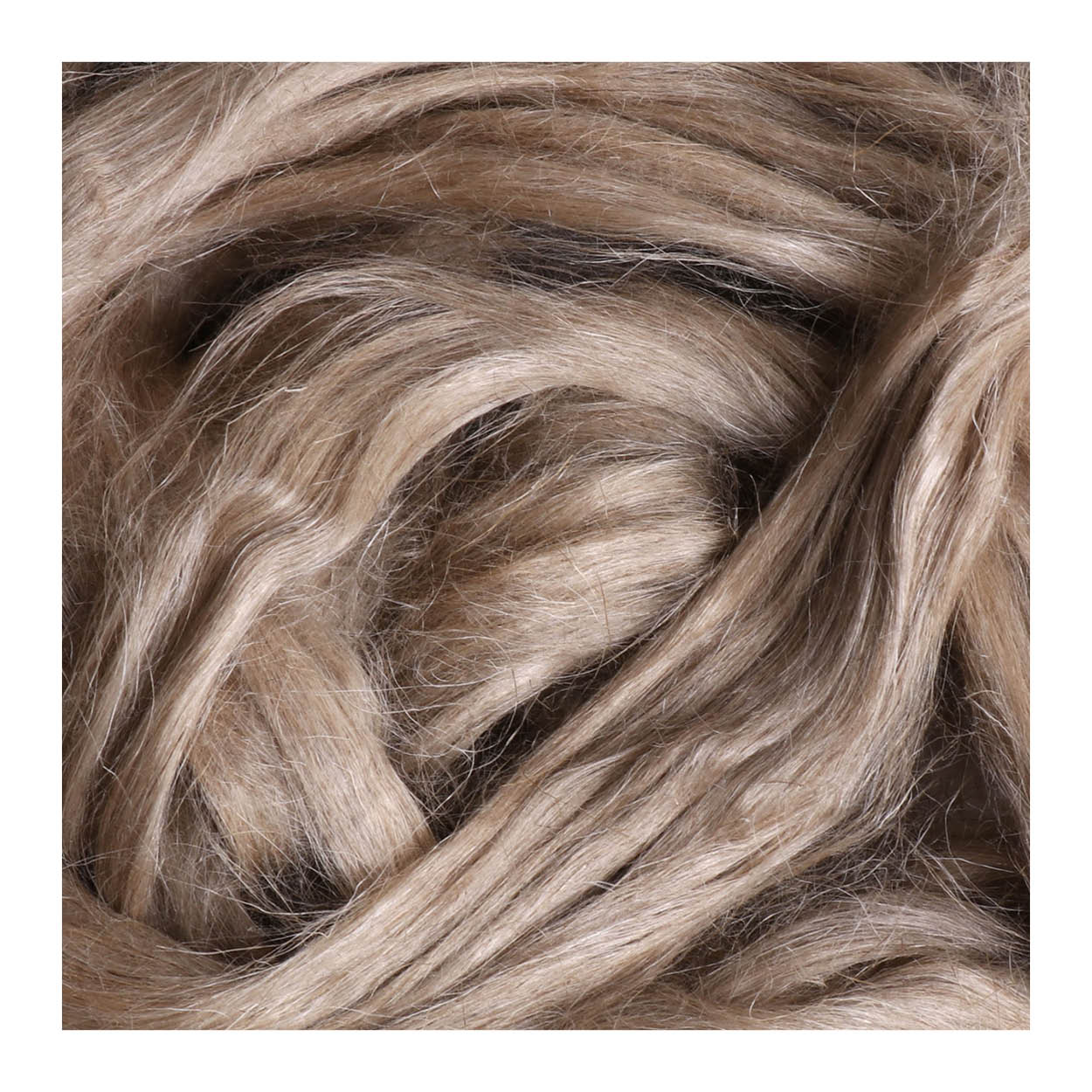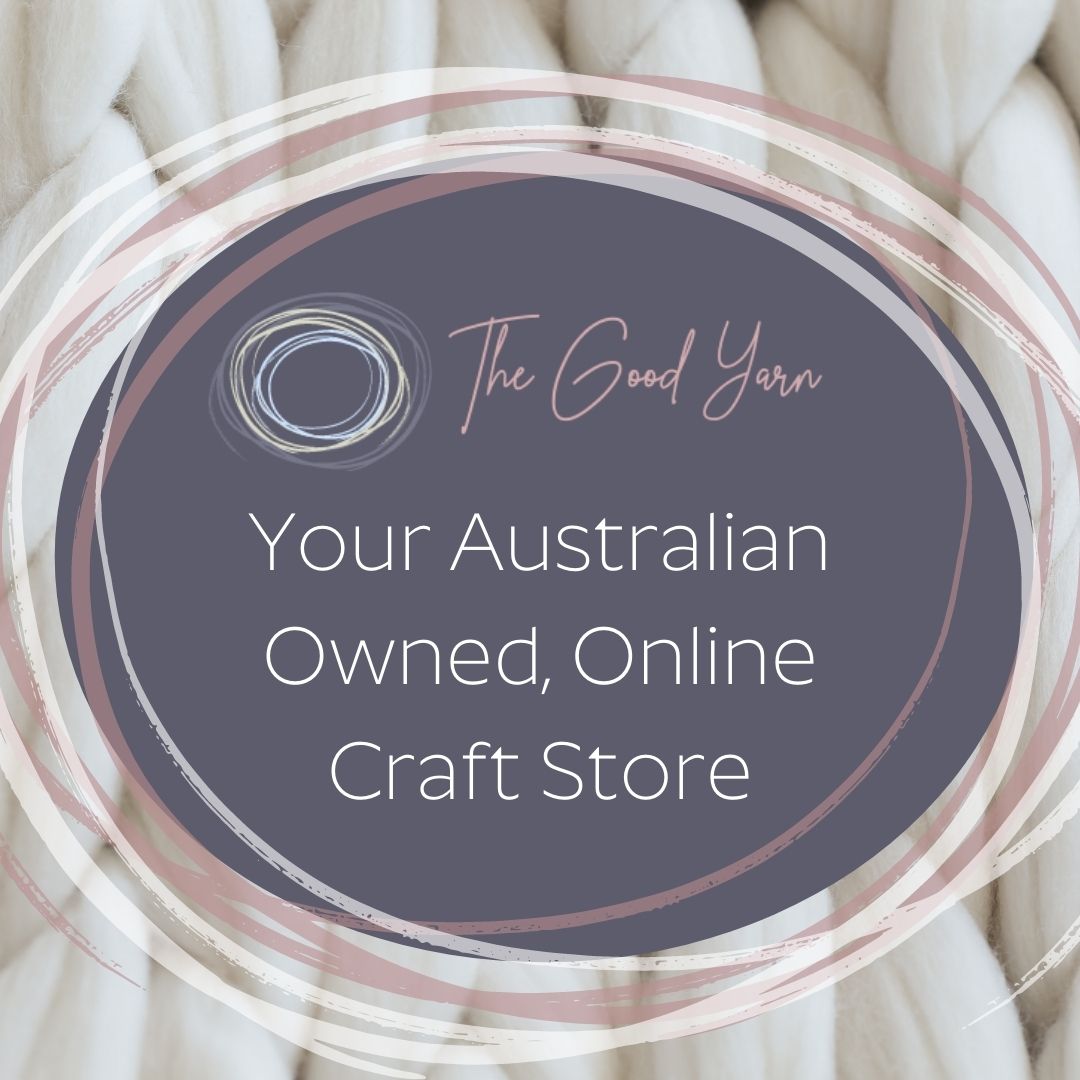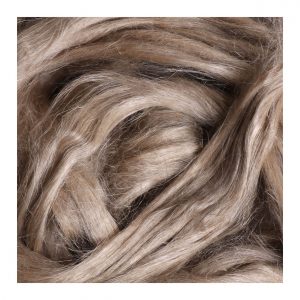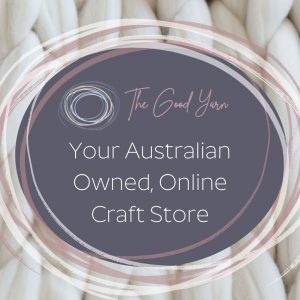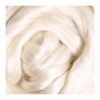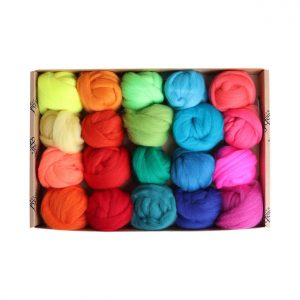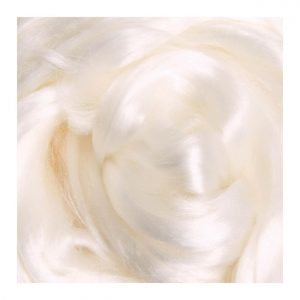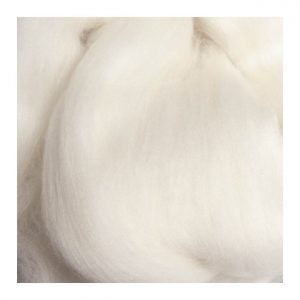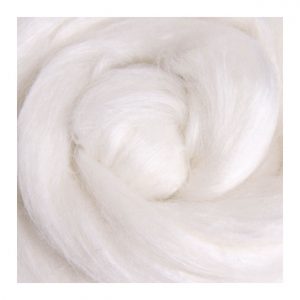Linen Fibre – 100gm Bag
Flax or linen is strong, absorbs moisture, has no allergenic properties and softens with continued use. It has a wide variety of applications. It is used in clothing, furnishings, household fabrics, yarn and rope.
Linen is perfect for spinning and weaving
Linen fibre is highly regarded for spinning and weaving due to several key characteristics that make it an excellent choice for these textile processes:
- Strength and Durability: Linen fibres are known for their strength and durability, making them ideal for producing long-lasting textiles. Linen fabrics can withstand heavy wear and tear and tend to become softer and more comfortable with use.
- Breathability: Linen is a natural fibre that allows for excellent airflow and moisture absorption. This breathability makes linen fabrics comfortable to wear in warm and humid conditions, as they help regulate body temperature and keep the wearer cool and dry.
- Smooth Texture: Linen fibres are relatively smooth, which results in a sleek and lustrous appearance in finished fabrics. Linen textiles have a subtle sheen that adds an attractive visual appeal.
- Absorbency: Linen has high moisture-wicking properties, which means it can absorb and release moisture quickly. This absorbency helps keep the body dry and comfortable, making linen suitable for clothing, especially during hot weather.
- Natural Lustre: Linen fibres have a natural shine that can enhance the visual appeal of the finished product. Linen textiles often have a timeless, elegant appearance.
- Environmental Benefits: Linen is made from the flax plant, which requires fewer pesticides and synthetic fertilizers compared to other crops like cotton. Additionally, flax is typically grown in cooler climates, reducing the need for excessive irrigation.
- Anti-Bacterial Properties: Linen has natural anti-bacterial properties, which can help prevent the growth of bacteria and odours in textiles.
- Environmental Sustainability: Linen is considered an environmentally sustainable fibre because the flax plant has a low environmental footprint. It requires less water and synthetic chemicals compared to some other textile crops. Linen is also biodegradable.
- Versatility: Linen can be spun into a wide range of yarn thicknesses, making it suitable for various applications, from fine apparel and table linens to heavier fabrics for upholstery and home textiles.
- Aging Gracefully: Linen fabrics tend to age gracefully, developing a softer and more relaxed appearance over time while maintaining their durability.
| Weight | 0.1 kg |
|---|

